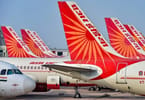Strict government regulations allow only certain airlines to use certain airports and only at certain times. This political restriction of our skies is inefficient and hurts not only our tourist industry but also the development of SA as a regional hub for international business.
Recently, the Brenthurst Foundation published a report that showed how liberalisation of Africa’s skies would increase tourism and business generally. It showed how development of regional hubs in Dubai and Singapore has allowed these cities to grow not only their air traffic but also to expand business in wider infrastructure – cargo, trade and import-export services.
The report pointed out how important it is to be first. These cities were able to do the right things at the right time to make their airports attractive. The flying business is all about volume and if you make your airport attractive enough you get disproportionate benefits. The gains to be had for SA through liberalisation of its skies are immense. Tourism is SA’s biggest industry sector and shows rapid growth, in line with world markets. We should do more to encourage this if we want good jobs. Tourism worldwide generated $500bn in 2004 and is growing substantially as people get wealthier.
SA gets the lion’s share of Africa’s tourists. In 2004 we received 6,1million visitors. Next biggest was Egypt (5,5-million), then Morocco and Tunisia (5-million). Zimbabwe used to get 1-million tourists a year. However, overall, Africa accounts for a mere $7,5bn or 1,5% of the global tourism pie. African countries certainly have work to do in developing the support services tourists need, but the pathetically low market share is mostly explained by a reluctance to liberalise the African skies.
Politically, “open skies” is the easiest thing to achieve. In 2000 and 2003, Kenya and SA took steps in a bilateral arrangement to open up air traffic between Johannesburg and Nairobi. Monthly passenger volumes ended up 69% higher than under the previously protected regime. Studies show that liberalisation in the Southern African Development Community could increase traffic volumes by up to 20% annually.
Domestic restrictions also hindered South African travellers. We used to have a very tight market, ruled by South African Airways (SAA). When the domestic market was liberalised, low-cost carriers like Kulula and 1Time emerged. Passengers have never had it so good. With Mango joining the fray, travellers are now offered more destinations at prices to suit all pockets.
So, why not open skies tomorrow? If there are gains to be had from more consumer choice, higher travel volumes and lower prices, what’s stopping us? Unfortunately, the ears of Parliament get bent not by consumers or desperate people looking for jobs, but by highly paid airline consultants. Opening our skies necessarily means more competition. It implies allowing more airlines into our country. This will drive down prices, taking business away from our lethargic, tax-funded state carrier. Inevitably, there will be kicking and screaming.
SA’s experience is not unique. Historically, the UK’s travel relationship with the US has been fraught with difficulty. While consumer lobby groups argue for the benefits associated with increased links, British Airways (BA) and Virgin do their level best to restrict flights and entry. BA and Virgin have insisted upon reciprocity and the rights to operate internal flights in the US, which has prevented other routes from being opened. SAA’s objection to releasing more slots at OR Tambo is that BA and Virgin won’t do the same at Heathrow. But how is that our problem? It is an issue that affects SAA’s commercial prospects but shouldn’t affect our livelihoods. Reciprocity is not a good defence and certainly not a condition for open skies.
If we open our airports to other airlines and develop SA as an important regional hub, does it matter if we abandon the concept of a national carrier? Not really. Airlines and airports are about scale. To build a tourism industry we need tourists. We need cargo so we can build logistics companies and support services that create jobs. It makes no sense to subsidise a national airline when new industries are sacrificed for it. We should not repeat the mistake of other “strategic” industries like telecoms. Protecting Telkom might have been politically expedient, but poor bandwidth supply ensured high prices for consumers and a smaller technology sector than we could have had.
“Open skies” is not the hottest of political issues. The arguments are rarely understood by the public, but are well understood by the air companies involved. Lobbying is therefore a one-sided affair. What is required from government is leadership that recognises open skies as part of an overall strategy to increase tourism, cargo, air related services, business relations with Africa and an extension of the physical and network links with the rest of the world. The political sacrifices required from unilateral declaration of open skies are low. The benefits to the country’s economy would be substantial.
allafrica.com
WHAT TO TAKE AWAY FROM THIS ARTICLE:
- African countries certainly have work to do in developing the support services tourists need, but the pathetically low market share is mostly explained by a reluctance to liberalise the African skies.
- If we open our airports to other airlines and develop SA as an important regional hub, does it matter if we abandon the concept of a national carrier.
- This political restriction of our skies is inefficient and hurts not only our tourist industry but also the development of SA as a regional hub for international business.






















